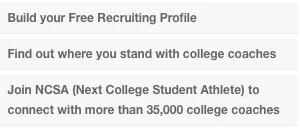ISU’s Palo Challenging Bedrock Athletics Legal Principle
Iowa State men’s basketball student-athlete Bubu Palo has won a legal decision which is historic even at the trial court level. A judge ruled that Palo must be reinstated to ISU’s men’s basketball team. Bryce Miller of the Des Moines Register reported on the university’s appeal to the Iowa Supreme Court and included this bit of background:
The back-and-forth situation has created discussion and debate about legal rights versus extracurricular participation privileges, pitting legal merit against university discretion. Iowa State teammates took to social media sites such as Twitter last week to offer support for the return of Palo, even as athletic director Jamie Pollard issued a statement about the university’s disappointment in the district court decision.
Pollard’s statement included the debate about who decides athletic eligibility: “We believe the university should have the sole right and responsibility to determine any student’s participation in extracurricular activities at Iowa State University.”
If Palo wins, it could be an even more significant legal victory for student-athletes than if the O’Bannon plaintiffs are victorious. Part of the justification for the rules and procedures of both the NCAA and its members is that participation in intercollegiate athletics is a privilege, not a right. Once a right is involved, the bar for due process can go up substantially, especially when state actors like public universities are involved. For decades, courts have ruled that participation is only a privilege, thus entitling student-athletes to only minimal due process protections.
A victory by a student-athlete in a state supreme court would at the very least reopen the debate about whether athletics participation is a privilege or right. The implications, even just in one state, would be immense. Can a court force a university to travel and play a student-athlete? Could athletes sue over admissions decisions, grades, or good standing decisions? Would it expose the NCAA Manual to judicial review?
All of that remains to be seen, and would still be limited to one state possibly even further by a favorable decision for Palo in this case. But any victory by a student-athlete on this issue is notable, and keeping it on appeal would be groundbreaking.


